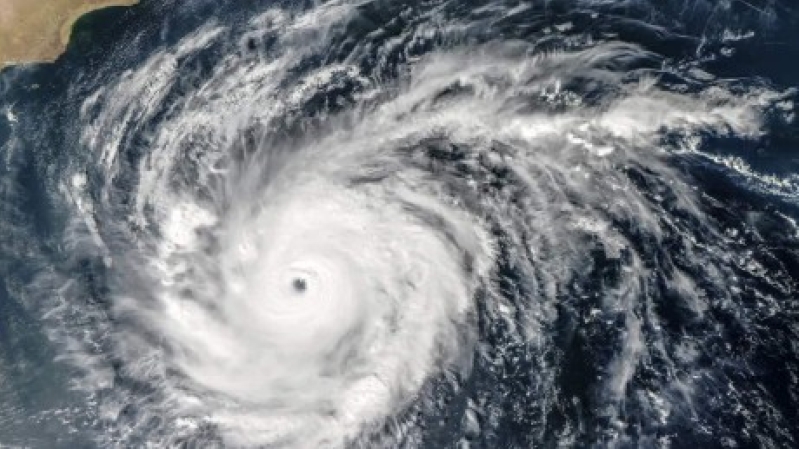
A rare tropical cyclone packing hurricane-force winds killed three people and injured scores on the exotic Yemeni island of Socotra on Monday and then headed towards a gas terminal and an Al Qaeda-controlled town on the mainland.
The World Meteorological Organization initially rated the storm, named Chapala, as "potentially very dangerous", but later on Monday downgraded it to "very severe" as sustained winds slowed marginally to 150-160 kmh (93-100 mph).
Maps plotting the storm's course after Socotra showed it making landfall on Tuesday morning at Balhaf, site of Yemen's liquefied natural gas terminal, and weakening as it advanced towards the capital Sanaa in the country's north.
The U.N. humanitarian office said it expected Chapala to be mostly felt in the southern coastal governorates of Shabwah and Hadhramaut, where 1.4 million of the 1.8 million population need humanitarian aid due to Yemen's ongoing war.
The cyclone first hit Socotra, an island of rare natural beauty with a prehistoric feel - hundreds of plant species found nowhere else on Earth - 380 km (238 miles) off Yemen in the Arabian Sea. Its 50,000 residents speak their own language.
Amateur pictures and videos posted on social media, which could not be immediately verified, showed torrents of water washing through the streets of the island capital Hadibu.
"Three people were killed, around 100 have been injured," said a local official, without describing the causes of death.
Mohammed Alarqbi of the Socotra Environment Office said torrential rains had pounded impoverished coastal villages.
"Around 1,500 families have fled to the interior and to the mountains. There's absolutely no help coming from the outside."
Long remote, the island - slightly larger than Majorca or Rhode Island - has become especially cut off from mainland Yemen by a seven-month war there between Iran-allied fighters and a coalition of Arab states led by Saudi Arabia.
Yemen, generally arid and hot, receives relatively little rainfall and the infrastructure in the Arabian Peninsula's poorest country is ill-equipped built to handle large deluges.
Close to the storm's path later on Monday was the port of Mukalla, which has been run by a tribal council and Al Qaeda militants since the army and government institutions withdrew in April.
One of the militants in the town posted pictures on his Twitter page of a convoy of pickup trucks crudely labeled "rescue team" patrolling the seafront on Sunday night.
"God protect us, the winds are not normal in Mukalla, may the Lord deliver us ... Your prayers, please, O monotheists," said the man, going by the name of Laith al-Mukalla.
He recommended packing flashlights and first aid kits. Other, earlier posts on Twitter showed images of his al Qaeda comrades demolishing the shrines of local saints last week.
The authenticity of the account could not be verified.
Residents worried that Yemen's power vacuum would mean no authorities were in a position to deal with storm damage.
"The sea water level has risen by 9 meters (30 feet) and has destroyed Mukalla's seafront," said resident Muhammed Ba Zuhair. "Many people have left there homes and are seeking refuge in schools. No relief or aid efforts are under way by either the tribal council or al Qaeda, and the situation is really bad."
(Reporting by Noah Browning, Mohammed Mukhashaf, Mohammed Ghobari and Tom Miles; Editing by Mark Heinrich)







